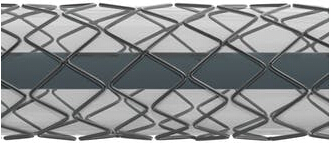
Location: Home > Exhibition preview > Detail >> Exhibition lists
News
A recent study bolstered an 'ultra thin' model developed by a German device maker, but Medtronic and Boston Sci are not convinced.
By Joe Carlson Star Tribune
MAY 31, 2019 — 8:53PM

BIOTRONIK
The new report shows 2% of patients with Biotronik’s Orsiro stent needed a “revascularization” within three years.
TEXT SIZE
EMAIL
PRINT
MORE
The exterior of the human heart contains critical blood vessels thinner than a small headphone jack that ensure the heart gets enough oxygenated blood to keep beating normally.
When those vessels get clogged, interventional cardiologists will often insert a tiny metallic mesh tube into the vessel to keep them open over time. Now a new generation of stents with very thin components are being implanted in patients and monitored for years in clinical trials to see if they offer better results than slightly thicker versions of the same devices.
Long-term study results announced at an industry conference last monthshow that, indeed, a European stent made by with “ultra thin” components helped patients avoid do-over procedures to “re Biotronik vascularize” the same vessel better than wider stents did.
The Biotronik device had less than half the rate of do-over vascularizations compared to an older Medtronic stent in small vessels, and it also showed better performance on that measure than a premium-priced Boston Scientific stent designed in Minnesota.
Specifically, in about 1,500 patients randomized in the Netherlands as part of the Bio-Resort trial to receive either Berlin-based Biotronik’s Orsiro, Medtronic’s Resolute Integrity, or Boston Scientific’s Synergy stents to treat blockages in small coronary vessels, 2% of the Biotronik patients needed a “revascularization” within three years in those vessels. The three-year revascularization rate compared to 5% for Medtronic’s Resolute Integrity. About 4.1% of the Boston Scientific stent patients in the study needed the do-over procedure.
Those results were included as a part of a “subanalysis” of Bio-Resort patients, focusing on the 1,506 participants who had blockages in the narrowest vessels, of no more than 2.5 mm in diameter. (The study looked at differences in the thickness of the metal that makes up springlike devices, not the diameter of the devices themselves.)

Resolute Integrity DES Expanded on Balloon
Biotronik’s Orsiro stent was cleared by the Food and Drug Administration for U.S. sales in February, allowing it to compete with coronary stents from Boston Scientific, Medtronic, Abbott Laboratories and others in the multibillion-dollar U.S. stent market.